Mastering Competitor Tracking in 2025: Actionable Strategies and Real-World Case Studies
Did you know that 90% of Fortune 500 companies use competitive intelligence to gain an edge? In today's fast-paced market, staying ahead of competitors isn't just an advantage—it's a necessity. Here's how you can leverage competitor tracking to outmaneuver your rivals in 2025, with real-world examples uncovered by RivalSense.
🎯 Why Competitor Tracking Matters in 2025
Competitor tracking helps you:
- Identify strategic gaps through SWOT analysis of competitors' operations
- Predict market trends using AI-powered pattern recognition
- Optimize pricing with real-time monitoring of 15+ pricing factors
- Accelerate innovation by benchmarking product development cycles
🔍 2025 Case Studies: Decoding Competitive Moves
1. Event Intelligence: BigBuy Dominates Eshow Madrid 2024
BigBuy attracted 400+ visitors at Eshow Madrid by showcasing their AI-driven dropshipping solutions. RivalSense detected this move 6 weeks pre-event through exhibitor list monitoring.
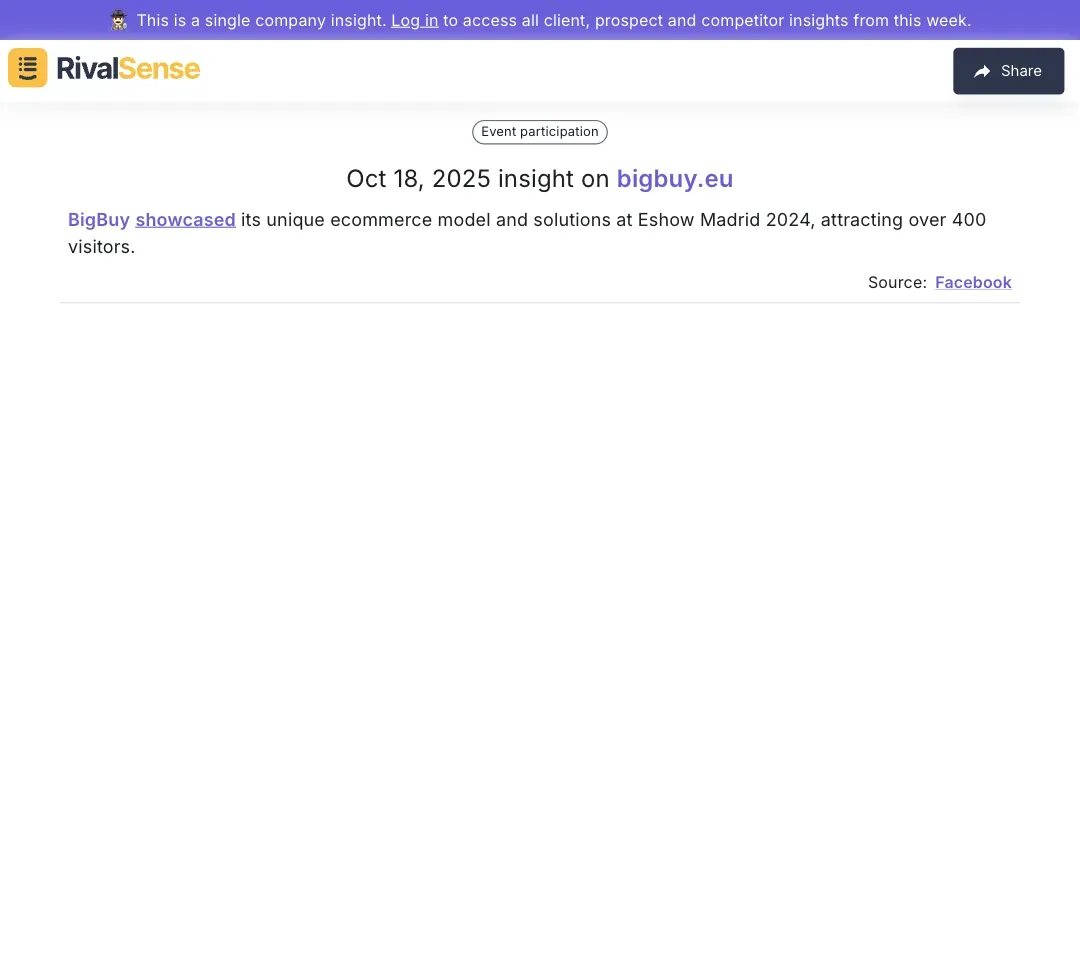
Action Plan:
- Set up automated alerts for competitor event registrations
- Analyze post-event engagement metrics (lead gen, social mentions)
- Benchmark your event ROI against industry averages
2. Partnership Analysis: HelloPrint's $2M Real Estate Deal
HelloPrint secured a 12-month contract with Spain's top real estate firm by offering customized tenant welcome kits. RivalSense's partnership tracker identified this opportunity through supplier database changes.
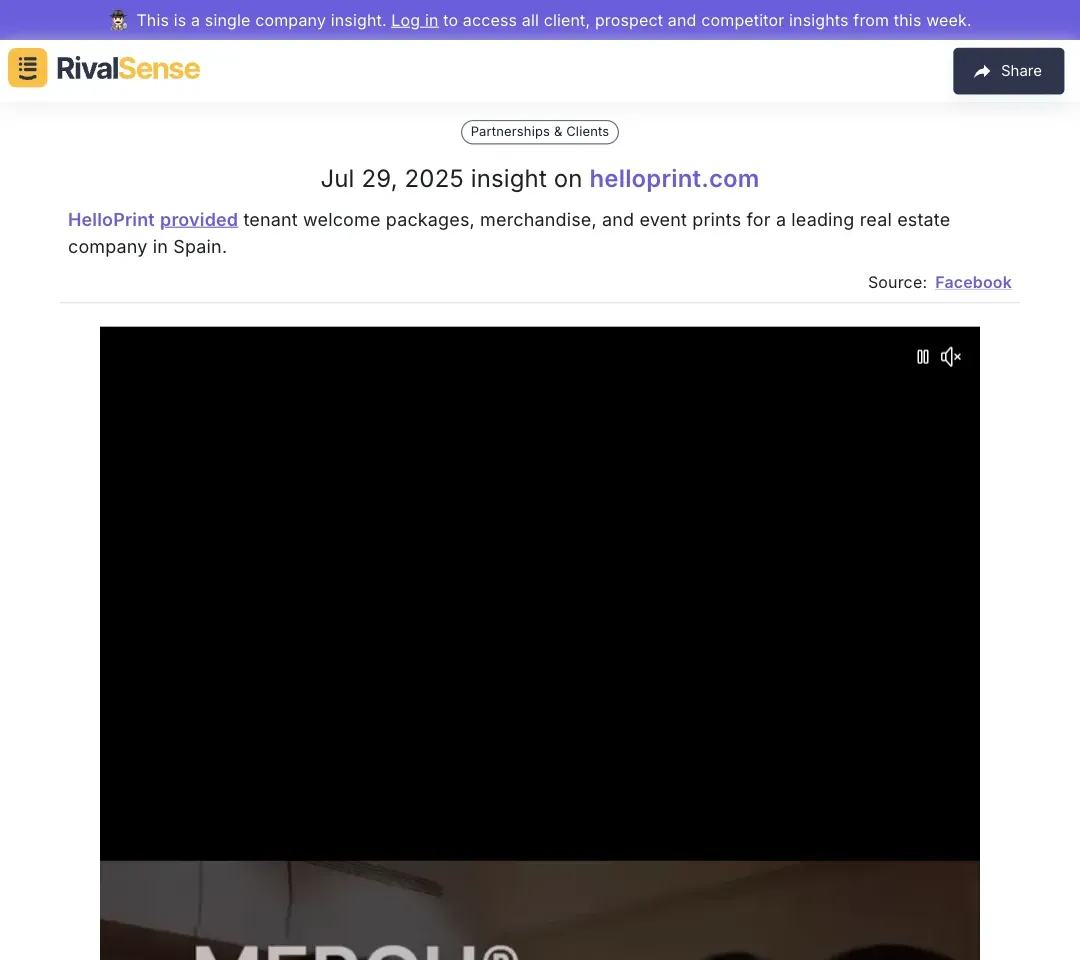
Implementation Steps:
- Monitor competitors' CRM integrations
- Track client portfolio expansions in adjacent industries
- Use relationship mapping tools to identify decision-makers
3. Product Launch Strategy: Swarovski's Hyper-Targeted Release
Swarovski's 'CRYSTALLISED AJ1' launch generated 18% higher engagement than previous collections by:
- Leveraging micro-influencers (83% nano-tier creators)
- Implementing phased regional rollouts
- Using AR try-on technology
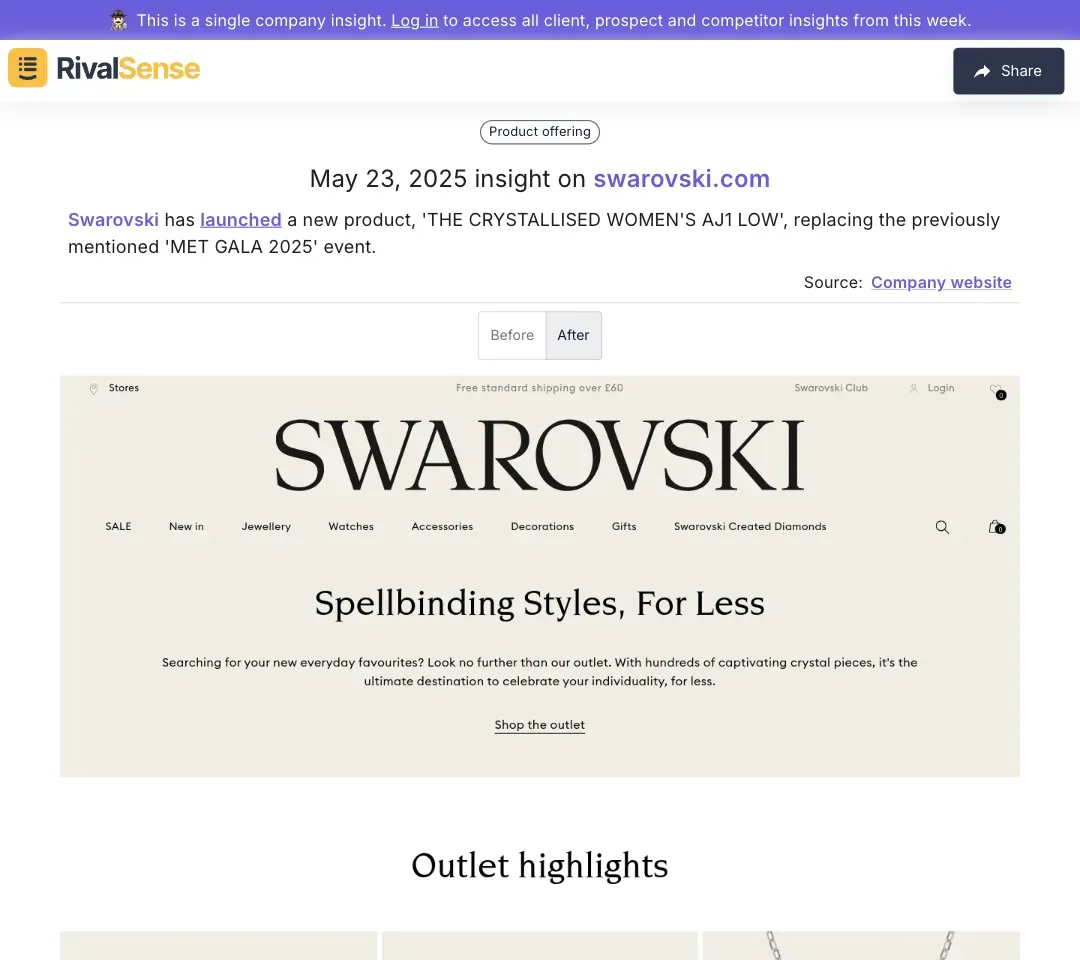
Optimization Checklist:
✅ Monitor patent filings 6-12 months pre-launch
✅ Analyze social sentiment for feature prioritization
✅ Track gray market distribution channels
4. Dynamic Pricing: Baltik's Cost Leadership Play
Baltik Elektro achieved 22% cost reduction by:
- Switching to local suppliers (tracked via RivalSense's vendor change alerts)
- Implementing AI-powered price elasticity models
- Bundling LED products with smart home integrations
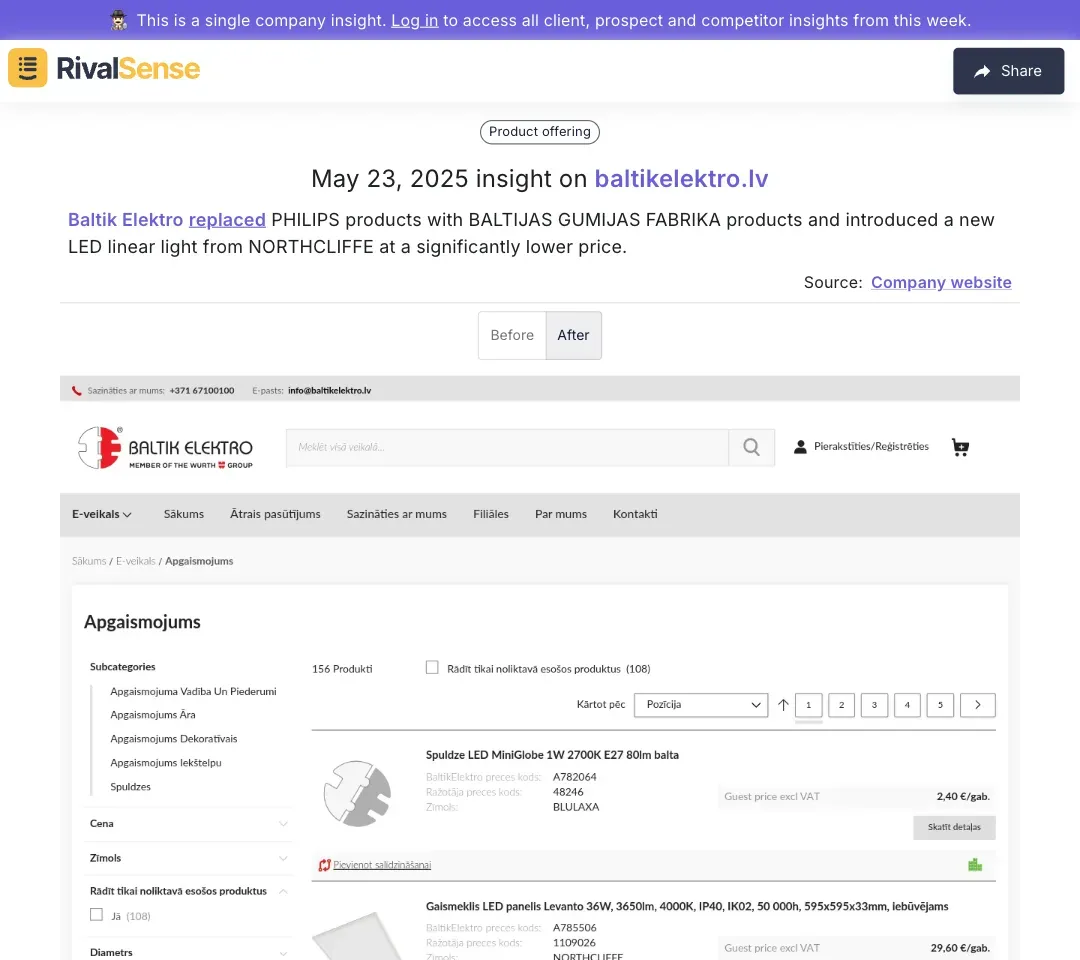
Monitoring Framework:
- Daily price tracking across 5+ channels
- Substitute product identification algorithms
- MAP violation detection systems
5. Strategic Pivots: Insightful's Hybrid Work Revolution
Insightful increased enterprise sales by 37% by:
- Repositioning from employee monitoring to productivity analytics
- Developing ISO 27001-certified data protection features
- Creating hybrid work benchmarking tools
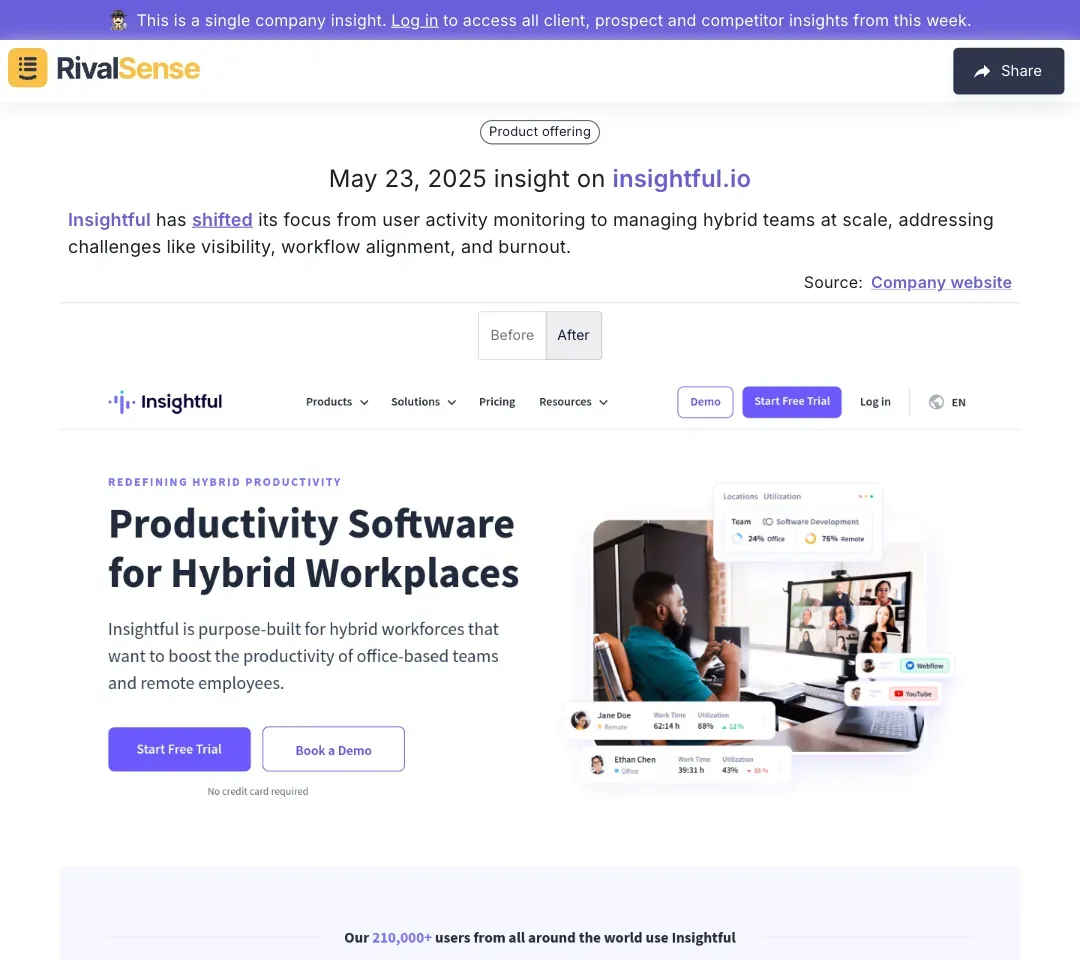
Early Warning Indicators:
- Leadership team changes
- R&D investment shifts
- Customer success team expansions
🛠️ Building Your 2025 Competitor Intelligence Engine
Step 1: Automate Data Collection
- Implement RivalSense's AI trackers for:
- Website change detection (pricing/features)
- Job post analysis (expansion signals)
- Social listening across 15+ platforms
Step 2: Advanced Analysis
- Conduct war gaming simulations using competitor data
- Build predictive models using historical pattern libraries
- Implement anomaly detection for unexpected moves
Step 3: Operationalize Insights
- Create competitive response playbooks
- Set up cross-functional strategy review cadences
- Integrate CI data into product roadmaps
📚 Read more
👉 Unlocking Competitive Advantage: Actionable Insights from Tracking Facebook Competitors
👉 Revolutionizing Higher Education: 4 Innovative Trends Breaking Barriers and Fostering Creativity
👉 How Top B2B Companies Outmaneuver Competitors: Pricing, Product, and Engagement Insights
